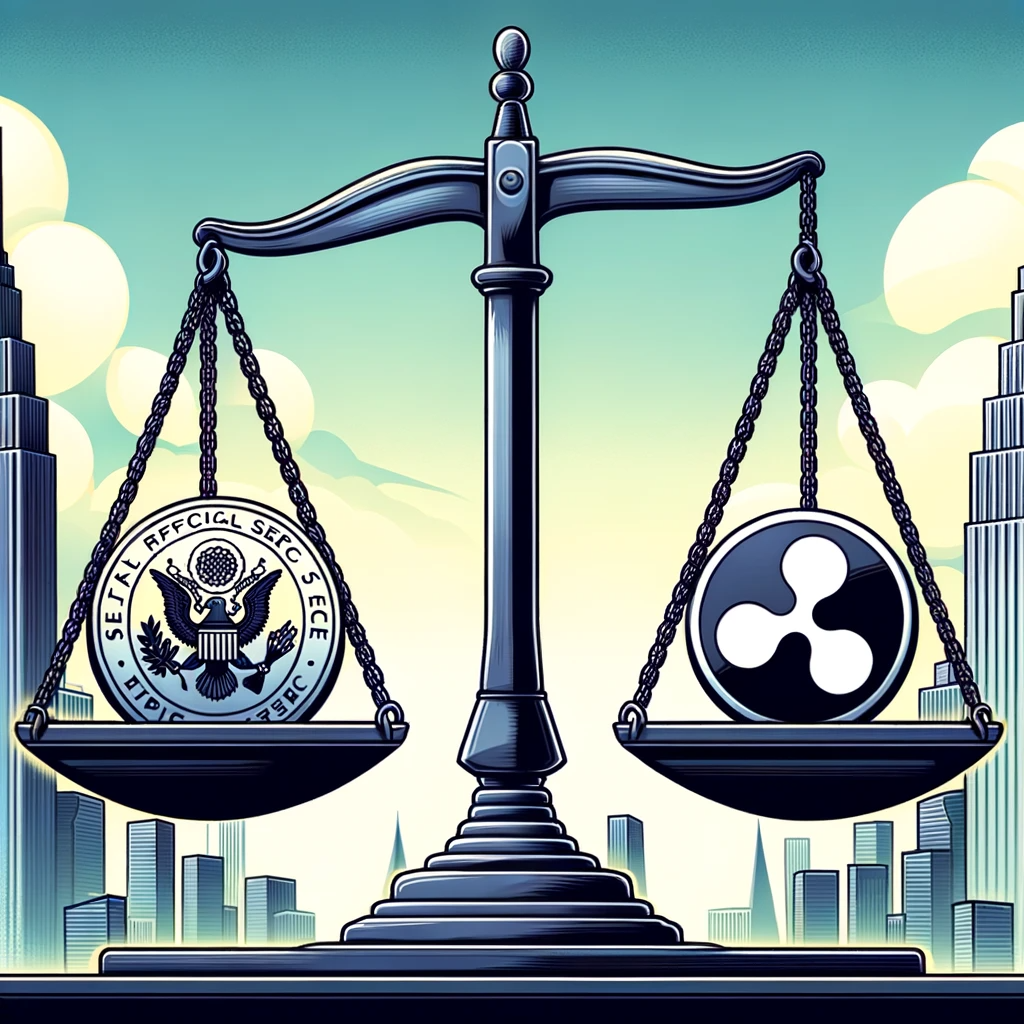Digital Zeitgeist – Legacy on the Line: Ripple’s Victory v SEC Signals a Tectonic Shift in Global Banking Paradigms
Introduction: The Winds of Change
In an unprecedented turn of events, the United States Securities and Exchange Commission (SEC) has recently dropped its allegations against two executives from Ripple Labs, a watershed moment indicating a potential shift in the regulatory landscape of digital assets. This development not only marks a significant point for the future of cryptocurrencies but also for the broader financial system, pointing towards a potential decrease in reliance on traditional fiat currencies, particularly the US dollar, a phenomenon known as de-dollarisation.
The Crumbling Pillar: De-Dollarisation on the Horizon
De-dollarisation refers to the process through which the US dollar’s dominance as the world’s reserve currency is reduced, a trend that has been picking up steam in recent years. Countries like Russia and China, wary of the dollar’s hegemony, have been actively taking steps to reduce their dependence on the currency, increasing the use of their own currencies in trade agreements and reducing their US dollar reserves.
One telling figure: in 2020, the dollar’s share of global reserves dropped to 59%, its lowest in 25 years, according to data from the International Monetary Fund. Moreover, a report by the Bank for International Settlements highlighted that non-dollar trade could be as high as 50% of total trade for key currencies.
Ripple’s Upheaval: A Catalyst for Financial Evolution
The recent legal developments surrounding Ripple are symptomatic of the broader shifts in the financial landscape. The SEC’s retraction of claims against Ripple executives Brad Garlinghouse and Chris Larsen is not just a legal victory for Ripple, but also a symbolic one for the cryptocurrency community at large. It suggests a possible easing up of regulatory stances, providing a more conducive environment for digital currencies to flourish, potentially accelerating de-dollarisation.
Ripple’s XRP, a digital currency tailored for real-time, cross-border payments, challenges the traditional banking system’s inefficiencies. By offering instantaneous transactions and system interoperability, Ripple stands as a beacon of financial innovation. The company’s partial victory over the SEC legitimises their utility and sets a precedent that not all digital assets should be classified and regulated as securities.
The Political Undercurrents: Shifting Tides in Regulation
However, Ripple’s ordeal also sheds light on a disturbing aspect of regulatory actions. As articulated by Garlinghouse and Larsen, there seems to be an underlying political agenda in these legal battles. The case against Sam Bankman-Fried, founder of crypto exchange FTX, underscores the complexities and potential biases present in the regulatory approach towards cryptocurrencies.
The current regulatory environment in the US, under SEC Chair Gary Gensler, seems particularly stringent, with lawsuits filed against major players like Binance and Coinbase. Despite Gensler’s assertion that many digital assets qualify as securities, industry experts argue that existing US securities laws are ill-equipped to handle the unique nature of cryptocurrencies.
The Global Stakes: Consequences of Financial Innovation
The implications of these developments extend far beyond the crypto community. The rise of digital currencies like XRP as legitimate financial tools represents a direct challenge to the traditional banking system and, by extension, the dominance of standard fiat currencies.
As digital currencies continue to gain acceptance, we may begin to witness a significant shift in how global finance operates. This innovation could undermine the dollar’s standing, particularly if digital currencies become the go-to choice for international trade and financial transactions.
Furthermore, the technology underlying these digital currencies, Distributed Ledger Technology (DLT), has immense potential to revolutionise the financial industry. DLT can provide a level of security, transparency, and efficiency unmatched by traditional financial systems, making it an attractive tool for global trade and finance, further facilitating de-dollarisation.
Riding the Wave: The Future of Global Finance
The case of Ripple is a microcosm of the larger financial evolution we are on the brink of witnessing. As legal and regulatory barriers begin to crumble, and technological innovations continue to advance, the global financial landscape seems poised for a seismic shift.
However, this transition will not be without its challenges. The battle between regulation and innovation is likely to continue, with significant implications for the industry’s stability and security. Moreover, the push towards de-dollarisation may lead to increased economic uncertainty, as the world navigates away from the relative stability provided by the dollar’s dominance.
Conclusion: A Brave New World
In conclusion, while the SEC’s recent actions against Ripple executives signal a potential shift towards a more open regulatory environment for digital currencies, they also highlight the ongoing struggles and political undercurrents in the financial world. The rise of companies like Ripple and the broader acceptance of digital currencies are poised to significantly alter the global economic landscape, potentially hastening the process of de-dollarisation.
This shift presents numerous opportunities, particularly concerning efficiency, transparency, and inclusivity in global finance. However, it also poses substantial challenges, particularly regarding regulation, security, and economic stability. Navigating this new world will require a delicate balance of innovation and regulation, with potentially far-reaching consequences for the global economic and financial system.
In the face of these changes, one thing seems certain: the traditional banking system and the dominance of fiat currencies, particularly the US dollar, are under threat like never before. The world must brace itself for the financial revolution that is seemingly just around the corner.
Disclaimer: The views and opinions expressed in this article are those of the author and do not necessarily reflect the official policy or position of GPM-Invest or any other organisations mentioned. The information provided is based on contemporary sourced digital content and does not constitute financial or investment advice. Readers are encouraged to conduct further research and analysis before making any investment decisions.

